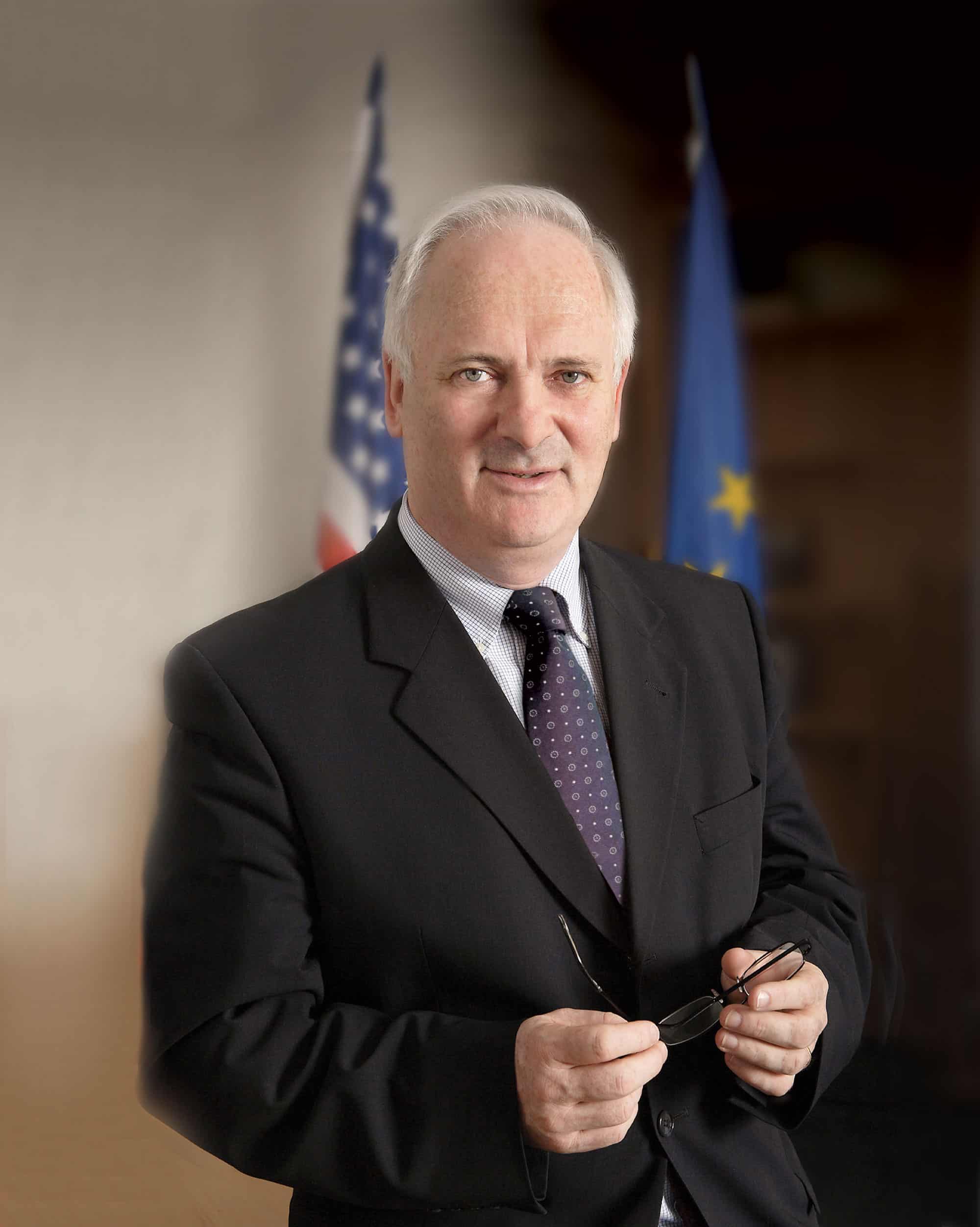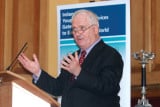John Bruton, President of IFSC Ireland, outlines why Ireland’s funds industry is a fast growth international business and why it is playing a crucial role in bringing the country back to economic prosperity.
While a centre of excellence for the servicing of funds from across the globe, the funds industry in Ireland supplies a vast amount of jobs, all over Ireland. Today, the industry employs 12,500 fund professionals and accounts for considerably more roles in the service sector.
While the funds industry is international in nature, there is a growing realisation about its importance to the Irish Exchequer. I believe that it is this aspect that will drive both the success of the funds industry and of the domestic economy of Ireland.
In Ireland, the funds industry administers €2.2 trillion in assets, linking investment managers and clients from around the world. Ireland is the world’s number one hedge fund centre servicing more than 40% of the globe’s assets and Ireland is the fastest growing UCITS centre in the world.
Ireland is fast becoming recognised as the managers’ European domicile of choice – a reputation built up over some 23 years.
Key player
What makes Ireland such a key provider for the funds industry is what we have to offer. Despite the decline in the domestic economy, the funds industry based here has been growing. You may be surprised to note that it has grown every year in its 23-year history, bar a slight blight in 2009.
But it is important to note that as far as the domestic economy goes, there have been significant improvements and the fundamentals of the Irish economy are strong – something that has ensured that Ireland is still considered a good place to do business in. In fact, over the last number of years Ireland has attracted more new companies than ever before with foreign direct investment at an all time high.
If you had to pick one single reason why Ireland’s international business continues to flourish and why our domestic situation fundamentals remain strong, it is because of our young people and a highly educated workforce.
“It demonstrates that when it comes to the funds industry, successive governments have continued the policies from predecessors because they make sense.”
Human capital
Bucking the demographic trends seen elsewhere, 35% of our people in Ireland are under the age of 25 and 60% of people in their 20s have a third level education. This is in stark contrast to other countries within the EU.
It’s also relevant that the cost of working in Ireland has come down in recent years. The cost of office rent has come down a massive 50% from the height of the market in 2007. Along with this, the rate of starting salaries has become much more competitive. The cost of Irish labor has fallen, whilst the EU average continues to rise.
On the wider economic situation, since 2009, Ireland has made a huge adjustment in the balance between what we take in and what we spend. We’ve done that in a way that has regained a lot of the confidence lost during the recession. While we still have a distance to go, we have come a long way. One of the reasons we’ve done this is because of the young modern and technologically advanced workforce.
Business environment
Specifically, in terms of the funds industry, Ireland affords investors a number of advantages including a very large network of double taxation agreements. The successive governments in Ireland have worked at negotiating this agreement with over 60 other countries.
This is an example of the foresight and success of the previous governments to ensure that Ireland offers the best value from which to base your funds. It also demonstrates that when it comes to the funds industry, successive governments have continued the policies from predecessors because they make sense.
The governments of Ireland over the last several years have worked hard at creating an atmosphere where international financial services businesses can succeed here, and largely as a result of the establishment of the International Financial Services Centre (IFSC).
On top of this, we have some simple but practical benefits such as the fact that we are an English speaking country – the only native English-speaking country in the eurozone. Not only that, but we are an English-speaking and financially literate country. It’s partly this, which has drawn so many businesses to Ireland, and it is no surprise that the largest number of funds administered in Ireland herald from the UK and the US.
Regulation
A particular draw for Americans is the legal system that is in place in Ireland. Ireland, like the UK, works under Common Law. Disputes and such are settled in a way that is familiar to America. This is not the case in many of the continental European counties.
Our regulators are a lot more easily accessible and, Ireland is quick to move as demonstrated by the news that it had become one of the first countries in the world to reach agreement with the US authorities on FATCA. This was a significant coup as reaching such agreement will prove challenging for many other jurisdictions.
Ireland’s strong positioning in the EU provides means for power in influencing the future of funds in European policy. The regulations with which the funds operate are EU regulations. Without the EU UCITS being regulated and a well-established brand, we might never have gotten the industry to the size and influence it demonstrates today. In essence, being part of the EU is and has been of huge benefit to the Irish funds industry and provided an open door to managers from outside Europe to access that market.
EU presidency
Ireland’s role in the presidency in the EU for the first half of 2013 means we will have the power to shape the agenda of meetings that deal with legislation for the funds industry. The placement of the funds industry in Ireland means that Ireland is acutely aware of the role and importance of it, which in turn will benefit the funds industry.
Growth potential
The future of the funds industry in Ireland can and will continue to grow provided the industry grows with it. We’re coming through a period where people have been looking at safety at all costs, and people want to ensure their money is safe.
Now that things are beginning to calm down, with the US and EU underway to fixing their problems, we probably are going to see a greater risk appetite. People will be looking at higher risks in the hope for a greater return. There will be a change in investor and management strategy and it is crucial that the Irish funds industry adapts to that.
The other area that should be concentrated on in Ireland is in the field of green finance. There is a need to raise money for long-term projects, whether they are in renewable energy or electricity transmission systems. All these endeavors are what make for a more energy efficient long-term investment where the return will be over the next 20-25 years. This is the ideal investment for pension funds, most of which now have a percentage of mandates, which must be directed towards such sectors.
Traditionally, banks financed that sort of thing but the new Basel rules on banking have made it difficult for the banks to lend as much as they were lending in the past on a long-term basis. This means that there is an opportunity for the funds industry to step in and provide that kind of long-term finance.
We have got to look not just at what is working this year, but what people will need several years from now and that’s why we need to take that position in green finance.
Without a doubt the funds industry will continue to strive in Ireland providing the solutions demanded by managers in an ever more regulated and complex world. And, by doing so and providing that level of service in the time required, the Irish funds industry will also be doing its bit to further strengthen that all important image of Ireland as a place to do good business in.
We look forward to doing business with you. Let us help you get on with your job.
*This article was originally published in Funds Review Ireland 2013.





